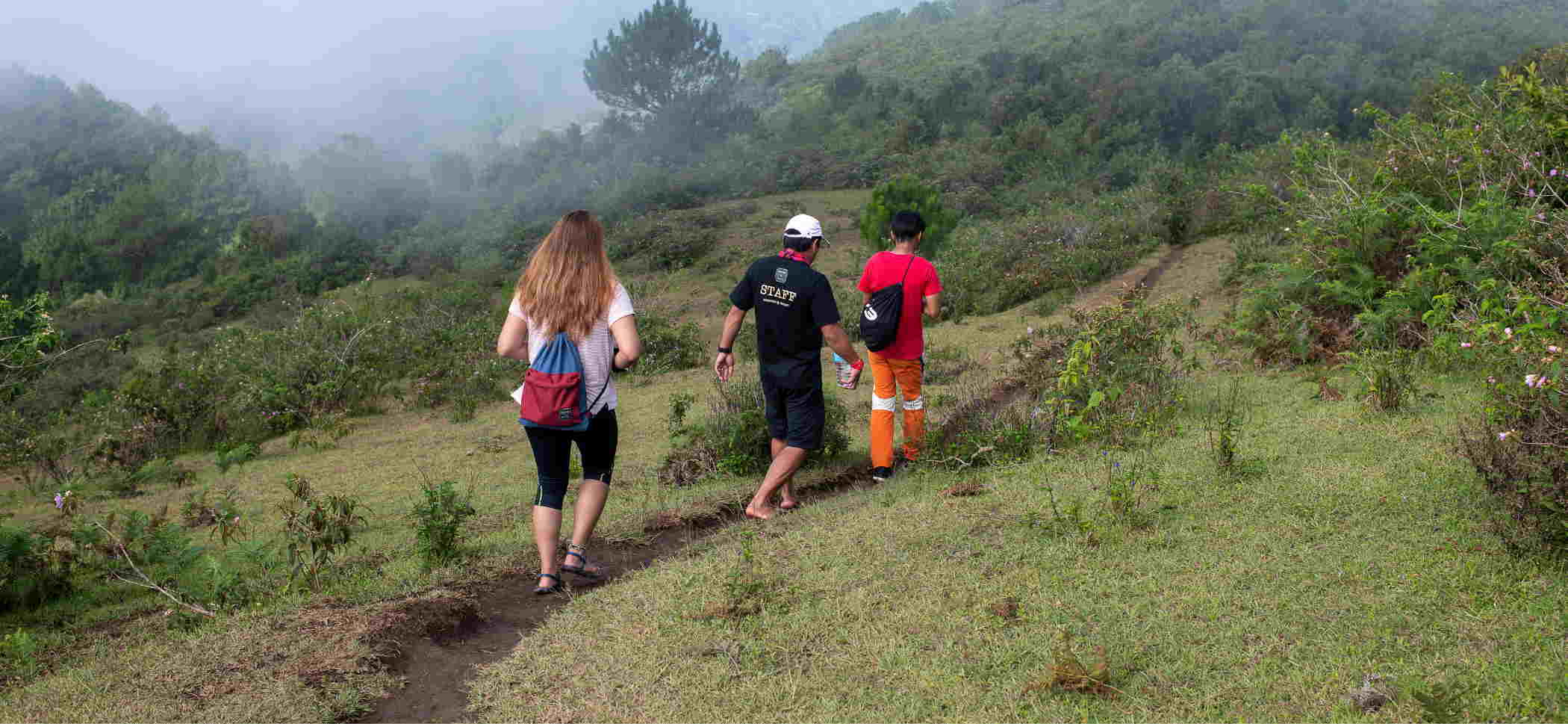If you’re anything like us, you care deeply about our planet, and taking good care of it. And while there are many positive impacts of travel, there are also many well-documented negative environmental impacts which can happen as a result of travel and tourism. But there’s good news: there are many small steps that individual travelers can take, in order to travel more sustainably.
Here are our top 7 habits for green travel in 2023.
Choose greener modes of transportation
It’s no secret that transportation can be taxing on the environment, and that overall, tourism contributes to around 11% of global emissions, while aviation is responsible for about one billion metric tons of CO2 emissions per year. And while airlines are pledging to reach net-zero carbon emissions in the next few decades, there are steps that individual travelers can take now, when it comes to green travel, to reduce their carbon footprint.
Firstly, travelers can consider all of the modes of transportation available to them. If there is an option between a flight, a bus, and a train ride, travelers can look at all of their options, and pick the one which is the most eco-friendly. You can Google the carbon emissions of different forms of transportation, or look into different discussions on this issue. Depending on the journey you’re taking, land transport might be more eco-friendly, for example.
Don’t forget, there are many eco-friendly options available to you when it comes to transportation. For example, if you’re considering renting a car, you can look into an electric vehicle. When you’re traveling between cities, you can use public transportation (in Israel we have an excellent bus and train system, for example), instead of taking a private car.

Consider carbon offset programs
If you’re in a financial position to do so, another great way to practice green travel is to participate in carbon offset programs. Carbon offsetting programs don’t actually reduce the amount of CO2 emissions that you create, but they do contribute to someone else cutting emissions to “offset” the amount of emissions created. You can look for verified carbon offset programs with the maximum positive impact, and choose flight, car, and boat carbon offset purchases. These programs support areas such as forestry efforts, clean energy, renewable energy, environmental education, water filter projects, and methane capture, just to name a few.
Invest in reusable & no-package products
When traveling, it can be tempting to use single-use items, or to toss items you no longer need in the trash, like plastic forks and water bottles you grab on the go. But with just a little bit of preparation, travelers can set themselves up to reuse products & reduce unnecessary waste.
For example, a travel-friendly reusable cutlery set can reduce or eliminate the amount of single-use plastic cutlery you need to use on the road. Other useful reusable products include reusable food storage containers (silicone and beeswax food wrap) to take your leftovers, refillable water bottles (you can get one with a filter to safely drink water from most water sources), a travel towel, and reusable straws (which can be made of stainless steel or bamboo). You can also bring a reusable bag (such as a canvas bag) to help during shopping trips.
When it comes to packaging, there are also many green travel solutions you can turn to which are more sustainable than traditionally packaged items. There are options for zero-waste shampoo and conditioner bars, as well as soaps and even toothpaste that use zero or low-waste packaging.

Choose green accommodation
While travelers can’t direct the environmental policies of hotels and hostels where they stay, they can choose to stay at accommodations which take steps to support green travel and sustainability. For example, hostels, hotels, Airbnbs, homestays, and ecotourism sites can implement different types of sustainable programs and policies, which travelers can look for when selecting their accommodation.
Exactly what type of green travel policies can you look for? Keep an eye out for sustainable policies (which are usually displayed on an accommodation’s website or in their building), commitments to environmental impact, or efforts to work with their local community.
Don’t forget, here at Abraham, we are deeply committed to encouraging positive change to both our society and environment, and have adopted an Impact Model. We’ve also shared our commitments to sustainable tourism here.
Enjoy green travel activities
When you’re actually on the road traveling, certain activities are more eco-friendly than others. In order to support green travel, consider participating in activities close to where you’re staying, which don’t involve transportation by vehicle. Hiking tours, free walking tours, running tours, and historical city tours are a great option. You can also consider activities that involve swimming, snorkeling, kayaking, and biking.
Looking for inspo for green activities when you’re staying with Abraham? You can visit local markets (like the famous Machane Yehuda Market in Jerusalem, or the Shuk haCarmel in Tel Aviv), hang out along the stunning Tel Aviv beaches, or take a dip in the Red Sea in Eilat. You can also visit local parks (such as HaYarkon Park in Tel Aviv), and stroll through historic old cities (like the ones in Jerusalem and Nazareth).

Hang out in sustainable spaces
From farm-to-table restaurants to shops that support local artisans, there are many ways you can practice sustainability while you travel by spending time in eco-friendly spaces. Look for restaurants which support local farmers, enjoy the tastes and smells of local markets, and spend your money at shops that carry sustainably-made products. You can even hang out at green rooftops, like the one at our Abraham Tel Aviv hostel. We recently partnered with the group UrbanDaisy, which designed our new green rooftop space and bar, filled with local Israeli plants.
Be aware of community impact
How tourism impacts communities deeply matters. When community impact is neglected, tourism can put stress on local communities, and can lead to negative impacts. But the good news is that when community impact is addressed, there can be many positive impacts of tourism. For example, tourism can contribute to more job opportunities, increased revenue from taxes and tourist spending, better infrastructure, and increased awareness about local issues.
Abraham’s Impact Model considers its local communities in several ways. Our overarching goal of our meetings, tours, and cultural activities at our hostels is to promote tolerance, assist in neutralizing prejudices, and build new bridges between people and communities. We also emphasize advancing small and medium-sized businesses in our areas of influence, as well as diversity and a working environment that celebrates difference.
If you’re looking to become a more sustainable traveler in 2023, there are many green travel choices you can make to practice sustainable tourism. And don’t forget, if you’re looking for tours that involve green travel (such as walking tours, biking tours, and hiking tours), we have plenty of options. You can head over to Abraham Tours to see our full range of tours in the Middle East and Philippines.




